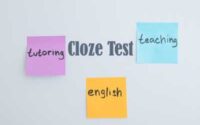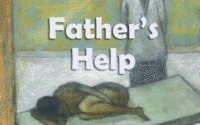Para Jumbles in English for SBI PO Recruitment Examination Preliminary and Mains
The Para Jumbles for SBI PO Question Papers are published here to help the PO Exam applicants. A large number of aspirants are searching on the Internet for the State Bank of India Probationary Officer Para Jumbles Model Papers.

It is the right place for those SBI Probationary Officer Sentence Rearrangement Previous Papers. Since, we are providing the valuable information about the State Bank of India PO Para Jumbles Last Ten Years Exam Question Papers & Answers.
Because we have given all the Sample Papers in English on Para Jumbles for SBI PO. Just in simple steps, you will download the State Bank of India PO Exam Sentence Rearrangement Papers freely.
Eligible aspirants can check & download the Para Jumbles for SBI PO and Clerk Question Paper with Answers on Sentence Rearrangement for State Bank of India Exam from the provided link. Aspirants searching for Para Jumbles for SBI PO can also download all questions from our website.
SBI PO Para Jumbles Practice Paper in English
Directions: Rearrange the following sentences in the proper sequence to form a meaningful paragraph; then answer the questions given below them.
Exercise – 1
(A) They collected plants, counted birds and photographed the terrain and the fauna and made their recommendations.
(B) In spring of 1963, an alarmed King Hussain invited a group of British scholars, scientists and naturalists.
(C) He also wanted them to cover the deserts to the east of the mountains.
(D) He wanted them to conduct an extensive survey, of the mountains on the eastern side of the Dead Sea.
(E) The problem of conservation of forests and forest birds and nature in general was thus set rolling.
(F) Accordingly, an expedition of internationally known experts in conservation, botany, ornithology, etc. went to Jordan.
1. Which of the following should be the FIFTH in the paragraph?
1) A
2) B
3) C
4) D
5) E
2. Which of the following should be the FIRST in the paragraph?
1) A
2) B
3) C
4) D
5) E
3. Which of the following should be the LAST in the paragraph?
1) A
2) B
3) C
4) D
5) E
4. Which of the following should be the SECOND in the paragraph?
1) F
2) E
3) D
4) C
5) B
5. Which of the following should be the FOURTH in the paragraph?
1) F
2) E
3) D
4) C
5) B
Exercise – 2
(A) Happiness, if at all found, is accompanied with sorrow.
(B) This attitude helps us to cope up with our unhappiness.
(C) The world is full of miseries, problems, risks and discomfiture.
(D) It also helps us to be sympathetic to others who are unhappy.
(E) Therefore, it seems to be wise to compare our lot with the lot of those who are less fortunate.
(F) None can find here perfect happiness.
1. Which of the following should be the FIRST sentence after rearrangement?
1) B
2) C
3) D
4) E
5) F
2. Which of the following should be the FIFTH sentence after rearrangement?
1) B
2) C
3) D
4) E
5) F
3. Which of the following should be the SIXTH (LAST) sentence after rearrangement?
1) B
2) C
3) D
4) E
5) F
4. Which of the following should be the SECOND sentence after rearrangement?
1) B
2) C
3) D
4) E
5) F
5. Which of the following should be the FOURTH sentence after rearrangement?
1) B
2) C
3) D
4) E
5) F
Previous Year Question Papers |
Exercise – 3
(A) Equally, if you show disloyalty to your company or colleagues, your manners will be seen as unacceptable.
(B) Much of this book is concerned with this golden rule.
(C) The other half is good manners invokes taking positive action to make the other person feel good about your relationship with him.
(D) They indicate to the person you are dealing with whether you can be relied on to act correctly and fairly when he does bus with you.
(E) Avoiding these negatives is only half the story.
(F) Manners are the patterns of behaviour.
(G) If he thinks that you are boorish, selfish or undisciplined your relationship is unlikely to be proper.
1. Which of the following will be the SEVENTH sentence?
1) C
2) D
3) E
4) B
5) A
2. Which of the following will be the FIRST sentence?
1) G
2) F
3) A
4) B
5) C
3. Which of the following will be the THIRD sentence?
1) G
2) E
3) F
4) B
5) A
4. Which of the following will be the FIFTH sentence?
1) A
2) G
3) E
4) F
5) D
5. Which of the following will be the SIXTH sentence?
1) B
2) D
3) F
4) A
5) C
Exercise – 4
A) People thoroughly dedicated to social service but not fulfilling the eligibility requirements would not be able to contest elections.
B) Those who fulfill the stipulated criteria of age and formal education may not be necessarily devoted to social service.
C) This system has both advantages and disadvantages.
D) Therefore, imposing such eligibility requirements is likely to be counter-productive.
E) In certain democratic countries, elections can be contested by anybody.
F) People would be deprived of the probable benefit accrued from services of such people.
G) There are no eligibility requirements of formal education and upper age limit stipulated in their Constitution.
1. Which sentence should be the FOURTH in the paragraph?
1) A
2) B
3) C
4) D
5) E
2. Which sentence should be the LAST in the paragraph?
1) A
2) B
3) C
4) D
5) E
3. Which sentence should be the FIRST in the paragraph?
1) G
2) F
3) E
4) D
5) C
4. Which sentence should be the SECOND in the paragraph?
1) G
2) F
3) E
4) D
5) C
5. Which sentence should be the THIRD in the paragraph?
1) A
2) B
3) C
4) D
5) E
Exercise – 5
A. We feel these things are glorious because of the splendid triumphs.
B. Because of these sacrifices we realise the victories of peace are even more glorious than victories of war.
C. The word victory is associated in our minds with war.
D. We are impressed by their sacrifices.
E. It calls up visions of battles, bloodshed and conquests by force.
F. But when we think of the philosophy of great men, scholars, social reformers, scientists and philanthropists we start thinking in a different way.
1. Which sentence should be the FOURTH in the paragraph?
1) B
2) C
3) D
4) E
5) F
2. Which sentence should be the THIRD in the paragraph?
A) A
B) B
C) C
D) D
E) E
3. Which sentence should be the FIRST in the paragraph?
1) A
2) B
3) C
4) D
5) E
4. Which sentence should be the LAST (SIXTH) in the paragraph?
1) A
2) B
3) C
4) D
5) E
5. Which sentence should be the SECOND in the paragraph?
1) B
2) C
3) D
4) E
5) F
Exercise – 6
A) The individual owes allegiance and obedience to the state.
B) It is its organ for the present action, the custodian of its tradition.
C) For, the nation is not only a fellowship of contemporaries.
D) The state exists for the citizens, not the citizens for the state.
E) But it is a partnership of present with past and future.
F) It is also the trustee for its future.
G) This is mainly because it is the representative and effective organ of the largest and most inclusive community to which he belongs.
1. Which sentence should be the FOURTH in the paragraph?
1) A
2) B
3) C
4) D
5) E
2. Which sentence should be the SIXTH in the paragraph?
1) A
2) B
3) C
4) D
5) E
3. Which sentence should be the FIRST in the paragraph?
1) A
2) B
3) C
4) D
5) E
4. Which sentence should be the SEVENTH (LAST) in the paragraph?
1) A
2) B
3) F
4) D
5) E
5. Which sentence should be the SECOND in the paragraph.
1) A
2) B
3) G
4) D
5) E
Exercise – 7
A. The history of that system is, however, a warning than a stimulus to reorganise a similar scheme.
B. However, We can’t resign ourselves merely because there are not data.
C. One of the commonest risks which agricultural life is exposed to in this country is famine or failure of crops.
D. There are, however, no reliable data on which such a scheme of insurance can be based.
E. A kind of Famine Insurance System was attempted by the British Government of India in the last century.
F. Still, the need for such a scheme to cover the losses due to famine, cattle plague, crop pests, etc. can’t be undermined.
G. It is obviously because of failure of rain and the consequence is starvation.
1. Which of the following should be the fourth sentence after rearrangement?
1) A
2) B
3) C
4) D
5) E
2. Which of the following should be the sixth sentence in the paragraph?
1) E
2) D
3) B
4) C
5) A
3. Which of the following should be there in the third position in the paragraph?
1) B
2) C
3) D
4) E
5) F
4. Which of the following should be the first sentence after rearrangement?
1) A
2) B
3) D
4) C
5) E
5. Which of the following should be the second sentence after rearrangement?
1) B
2) G
3) D
4) E
5) F
Exercise – 8
A) The reasons for formal education getting nullified are that we teachers have limited vision, our judgements about students are hasty and we are more knowledge-centred then student-centred.
B) Life educates as nothing else does.
C) Churchill rose to dizzy heights despite his teachers’ prophesies to the contrary. And there are many more such examples.
D) Life ‘s teachings sometimes supplement the education received in the classroom and at other times nullify it.
E) Education received in the classroom is insignificant as compared to what life teaches us.
1. Which of the following will be the SECOND sentence?
1) A
2) B
3) C
4) D
5) E
2. Which of the following will be the THIRD sentence?
1) A
2) B
3) C
4) D
5) E
3. Which of the following will be the FIRST sentence?
1) A
2) B
3) C
4) D
5) E
4. Which of the following will be the FOURTH sentence?
1) A
2) B
3) C
4) D
5) E
5. Which of the following will be the LAST sentence?
1) A
2) B
3) C
4) D
5) E
Exercise – 9
A) Therefore, the duty of the advocate is to do his best for his client.
B) That rests with the judge, and it is ultimately for the judge to decide which side is right, and how justice should prevail.
C) When he was asked what he thought of an advocate supporting a cause which he knew to be bad, Johnson’s answer was that the advocate did not know it to be good or bad till the judge determined it for him and for others.
D) But, he must do so fairly, and without concealing from it anything that it is his duty to divulge.
E) There is a belief that an adv0cate’s function consists, for the most part, of showing white as black and black as white.
F) He is, after all, the client’s mouthpiece, and he must put before the court all aspects of the case which are favourable to his client.
G) The only answer that one can give to this popular misconception is the famous answer that Johnson gave to Boswell.
H) But he is not concerned with the final result.
1. Which of the following will be the FIRST sentence in the passage?
1) C
2) E
3) F
4) G
5) B
2. Which of the following will be the FIFTH sentence in the passage?
1) F
2) G
3) D
4) C
5) H
3. Which of the following will be the SECOND sentence in the passage?
1) C
2) A
3) F
4) G
5) E
4. Which of the following will be the LAST sentence in the passage?
1) A
2) D
3) F
4) B
5) H
5. Which of the following will be the FOURTH sentence in the passage?
1) F
2) C
3) E
4) D
5) A
6. Which of the following will be the SEVENTH sentence in the passage?
1) D
2) B
3) H
4) A
5) C
Exercise – 10
A. While doing so, we may also correct any distortions that we may discern.
B. With all our experience and insight, we should be able to visualize them well in advance.
C. The celebration of the 50th anniversary of the country’s independence is a historic moment.
D. Also, it is a time to consolidate on the gains that we have made.
E. But, most of all, it is a time to gear up for the opportunities and challenges that lie ahead.
F. It is a time to introspect and evaluate what we have achieved in the last five decades.
1. Which of the following should be the FOURTH statement after rearrangement?
1) E
2) D
3) C
4) B
5) A
2. Which of the following should be the SIXTH (LAST) statement after rearrangement?
1) A
2) B
3) C
4) D
5) E
3. Which of the following should be the SECOND statement after rearrangement?
1) F
2) E
3) D
4) C
5) B
4. Which of the following should be the THIRD statement after rearrangement?
1) B
2) C
3) D
4) E
5) F
5. Which of the following should be the EIGHT statement after rearrangement?
1) F
2) E
3) D
4) C
5) B



